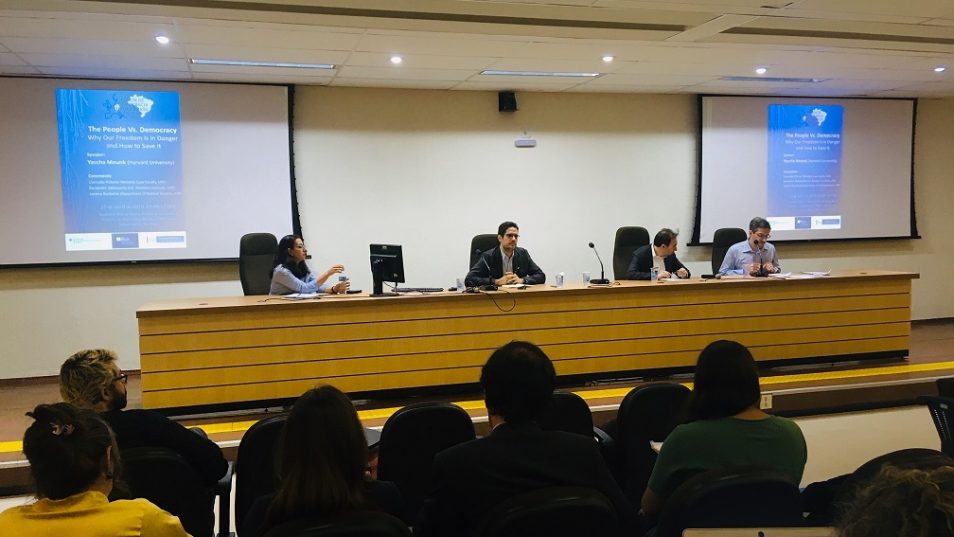Upsurge of populism does not affect democracies
 © DWIH São Paulo/Ana Paula Calegari
© DWIH São Paulo/Ana Paula Calegari
Democracy is in crisis mode. No wonder this issue is currently a hot topic in many countries. According to German political scientist Yascha Mounk (Harvard University), who was in Brazil at the end of April to take part in Europe-Brazil Democracy Forum series, due to the fact that democracy is not static and is always in movement as generations change, including external factors, we are now experiencing, specifically in this aspect, a surging wave of populists.
Mounk believes that democracy has lost strength and is in danger. “Unpredictable politicians dominate the scene, social tensions are increasingly evident, and the people are calling for changes. Guided by an exaggerated nationalist discourse and by witch hunts, these candidates have been able, each in their own way, to take advantage of voter discontent to benefit of their agenda. As a result, we are witnessing the rise of populists to the top political positions of countries such as Russia, Turkey, Egypt, the United States and, more recently, Brazil,” he explains.
Therefore, the political scientist believes that we are facing a tug of war between individual rights and the will of the people. On the one hand, give-and-take has become the mainstay in political exchange and has excluded the population from making fundamental decisions, thus creating a system of “rights without democracy”. On the other hand, antiestablishment politicians defend restoring power to the people and fighting against any and all institutional obstacles, even if that means creating, in practice, a “democracy without rights.” And he adds, “In order to reverse this situation, it is of the utmost importance to promote radical reforms that prevent democracies from sliding into ‘tyrannies of the majority’.”
Mounk identifies three primary causes of this political phenomenon: discontent with the economic times that generate stagnation of quality of life, fear and uncertainties regarding the future, and the use of social networks.
Social media and the rise of populism and the crisis of liberal democracy
When analyzing the ascension of authoritarian leaders, Mounk argues that the social networks influenced the election of populist candidates. “Via the social media, radical voices were overwhelmingly raised. Furthermore, they also made it easier for extremist parties and candidates to gain access to a broader spectrum of the public, organizing and holding digital political campaigns. The social media arises, here, as a strong and influential instrument in this political movement. If, on the one hand, we see a tool for openness and democracy, on the other hand, it acts as an intensely explosive means of leading many people into feelings of hate,” he explains.
Keeping an eye on the debate: “the people vs. democracy”
Yascha Mounk was the speaker invited to the April edition of the Europe-Brazil Democracy Forum, organized by the German Embassy in Brasília. Under the central topic of “The People vs. Democracy: Why Our Freedom Is in Danger and How to Save It”, the events were held in Brasília (24), São Paulo (25), and Rio de Janeiro (26).
In São Paulo, besides Mounk’s presentation, the event heard comments by Conrado Hübner Mendes (FD-USP), Karabekir Akkoyunlu (IRI-USP), and Lorena Barberia (DCP-USP).
The event was live-streamed and is available here! (Note: the event begins at 2:43:30)
by Ana Paula Katz Calegari
